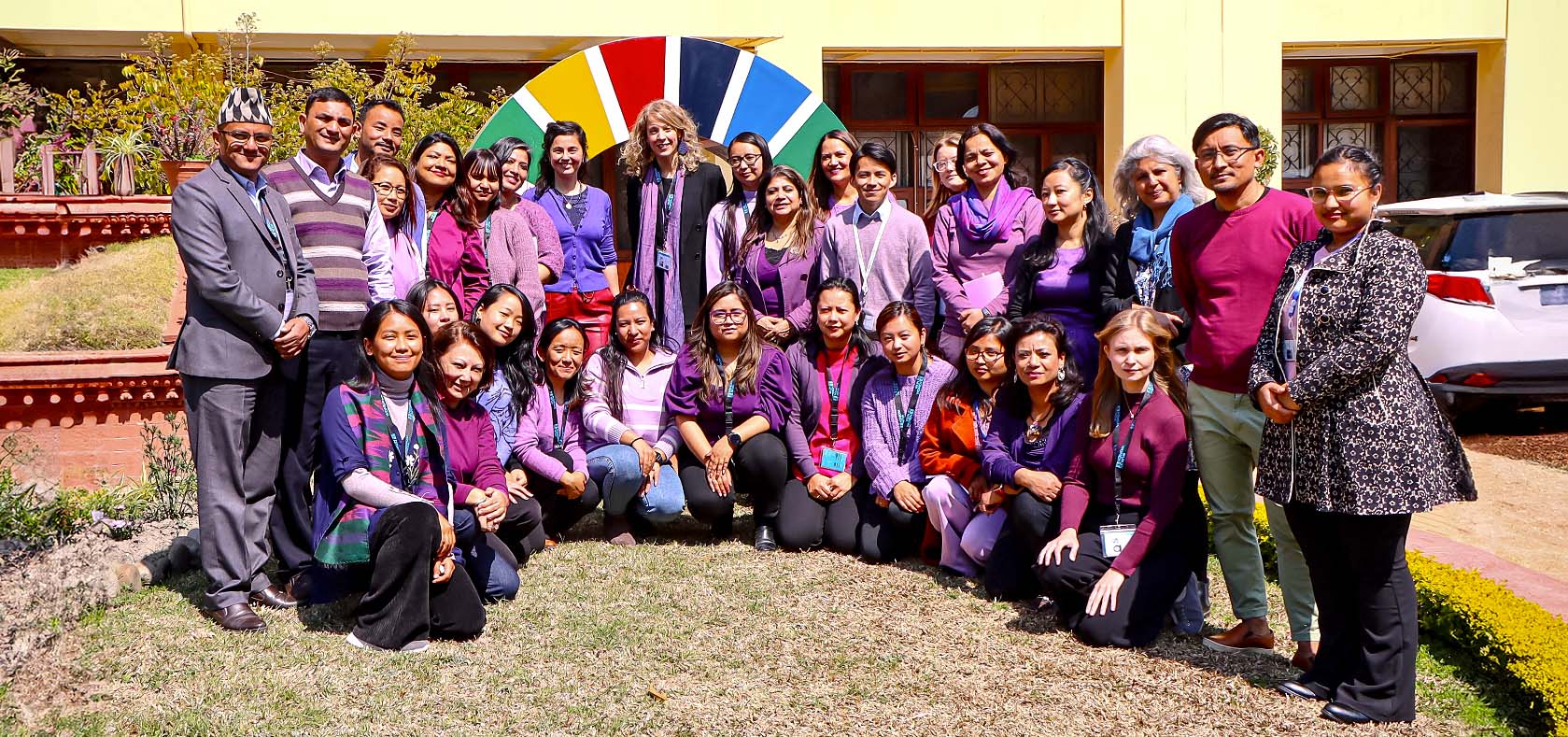Namaste! Welcome to UN Women Nepal

At UN Women Nepal, we are dedicated to advancing gender equality and empowering women and girls across the nation. Our mission is to create a society where every woman and girl can thrive, free from discrimination and violence, and with equal opportunities in all spheres of life. Our country office is in Kathmandu, and we have regional liaison offices in the provinces of Karnali, Madhesh and Sudur Paschim.
Our Commitment
Nepal has made remarkable strides in socioeconomic development, yet challenges remain. We are committed to supporting Nepal address these challenges by focusing on:
Women’s Economic Empowerment: We work to enhance the economic participation and autonomy of women, especially those from marginalized communities, by promoting access to resources, income opportunities, skills development, and sustainable livelihood opportunities. We support the development and implementation of macroeconomic policies and practices that advance gender equaldsity and incentivize gender-responsive budges, decent jobs and social protection for women. We advocate for recognizing, reducing, and redistributing unpaid care and domestic work.
Transforming social norms and ending gender-based violence: We collaborate with communities and institutions to eliminate harmful practices and gender-based violence, fostering a safe and inclusive environment for all. Across all our interventions we work to challenge negative stereotypes and promote positive social norms that contribute to gender equality, including by working with men and boys.
Environmental Sustainability and Resilience: We integrate gender and social inclusion perspectives into climate adaptation and disaster resilience strategies, generate data and empower women to lead and participate in disaster response and preparedness and sustainable development efforts. We also provide technical support to humanitarian coordination system including humanitarian actors to integrate gender-specific needs in plans and consider specific needs of women and girls.
Gender Responsive and Inclusive Governance: We work with women networks, women’s elected representatives, political parties, and aspiring leaders to promote women's equal representation and participation decision-making processes. We support the development and implementation of policies, laws and services that equally benefit women and girls. We work to create an enabling environment where women can seek remedies without fear of negative consequences and realize their rights through meaningful access to justice. We work with different justice sector actors including women judges and other stakeholders such as Ministry of Home Affairs, National Human Rights Commission, conflict survivor networks, CSOs to advance the Women Peace and Security agenda.
Our Impact
Through strategic partnerships with the government, civil society, academia, judiciary, private sector and development partners and the UN family, UN Women Nepal has contributed to significant policy reforms and community initiatives. Our programmes have empowered countless women, encouraging them to positively transform their lives and communities. By collaborating closely with these stakeholders, we have been able to:
- Advocate for Gender-Responsive Policies: Working with government bodies to draft and implement policies that promote gender equality and protect women’s rights.
- Strengthen Legal Frameworks: Partnering with the judiciary to ensure laws are enforced and accessible to all women.
- Enhance Knowledge: Collaborating with different institutions to provide orientation and training programs that empower women with knowledge and skills.
- Support Economic Empowerment: Engaging with the private sector to create job opportunities and support women entrepreneurs.
- Promote Community-Based Initiatives: Working with civil society organizations to implement grassroots programs that address local needs and challenges.
- Leverage International Expertise: Drawing on the resources and expertise of international development partners and the UN family to enhance our programs and initiatives.
Contact us
To learn more about UN Women and how to become a partner, contact us:
UN Women Nepal Country Office
UN House, Pulchowk, Lalitpur
GPO Box 107, Kathmandu, Nepal.
Tel: +977 1 4290000
Email: [ Click to reveal ]